At MERIT’s global Annual Summit in Seville, experts and HR and L&D decision-makers explored insights from people development, corporate learning, and innovation leadership.
In keynotes and MERITalks, influential thinkers challenged widespread beliefs about what hard work and strong leadership mean. Workshops enabled deep learning as participants worked on ideas and solutions together. Debates allowed different voices to emerge. For two days, the venue in Seville was abuzz with activity as delegates gathered over coffee and cocktails, and new friendships were formed during evening socials such as a flamenco night by the Guadalquivir River.
The #1 highlight in Seville was the convivial atmosphere that the participants created together. The Summit gathered 80+ HR and L&D experts from different continents and industries, as well as 50+ business school and independent experts, who were all eager to meet and learn from each other. In the feedback from the event, many shared that this friendly atmosphere is what sets MERIT apart.
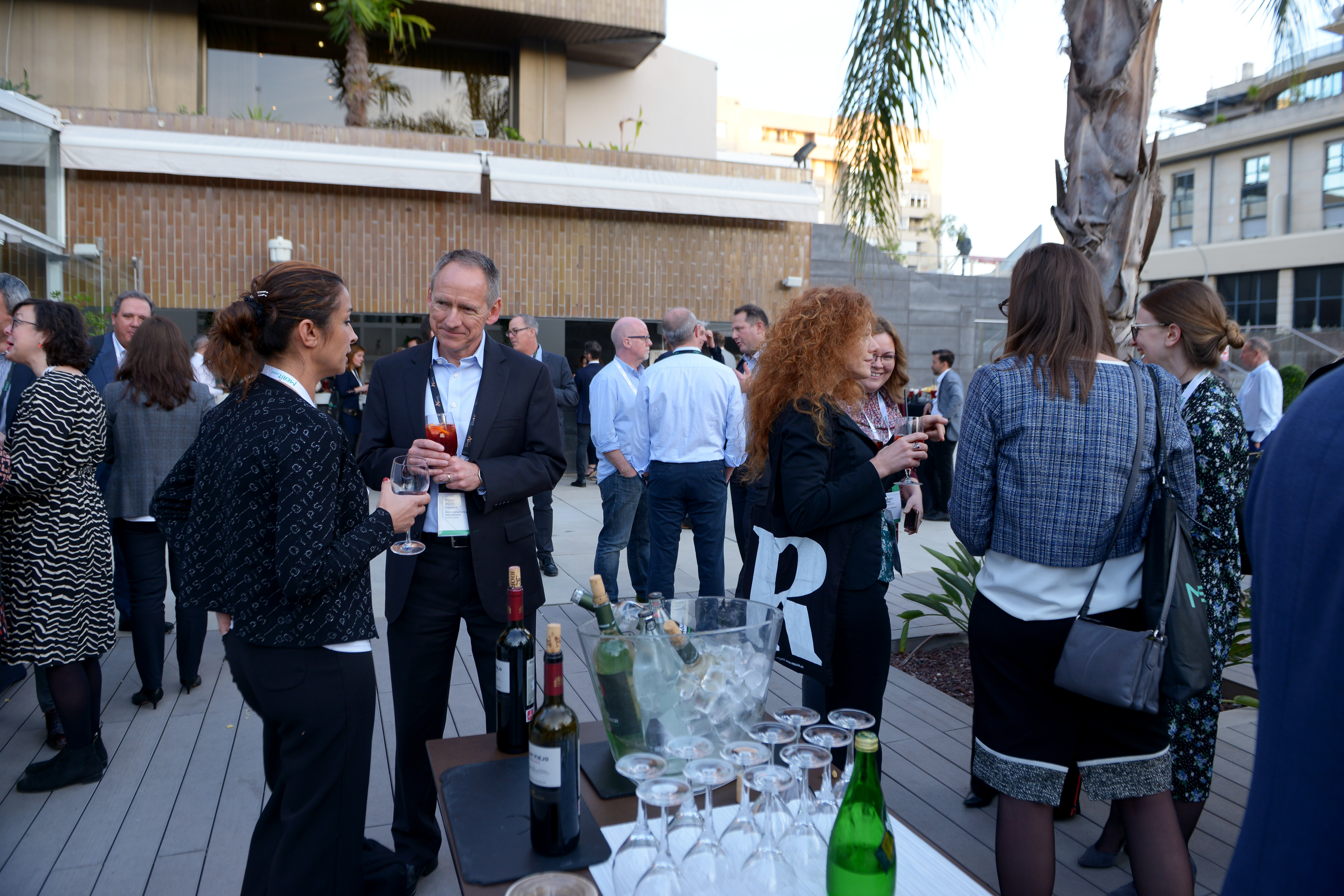
You can now start implementing the lessons from Seville – here are a few takeaways you can take back to work with you in the first days after the Summit. Meanwhile, you can save the date for our European Summit in Paris, hosted by LinkedIn, on 23 June, and join ongoing discussions as part of the MERIT Leadership Community.
1. The power of connecting.
A highlight for many attendees was the two hugely popular unconference sessions. Anyone was able to suggest a discussion topic or join a group on the spot. There were a total of 18 roundtable discussions on a wide variety of topics, from toxic leadership to adaptability and resilience. Participants brainstormed and shared in pairs and larger groups. “Great topics at the Unconference - and learning so much from the experts and all the experience in the room,” shared Natasha Bonnevale, partner at THNK School of Creative Leadership.
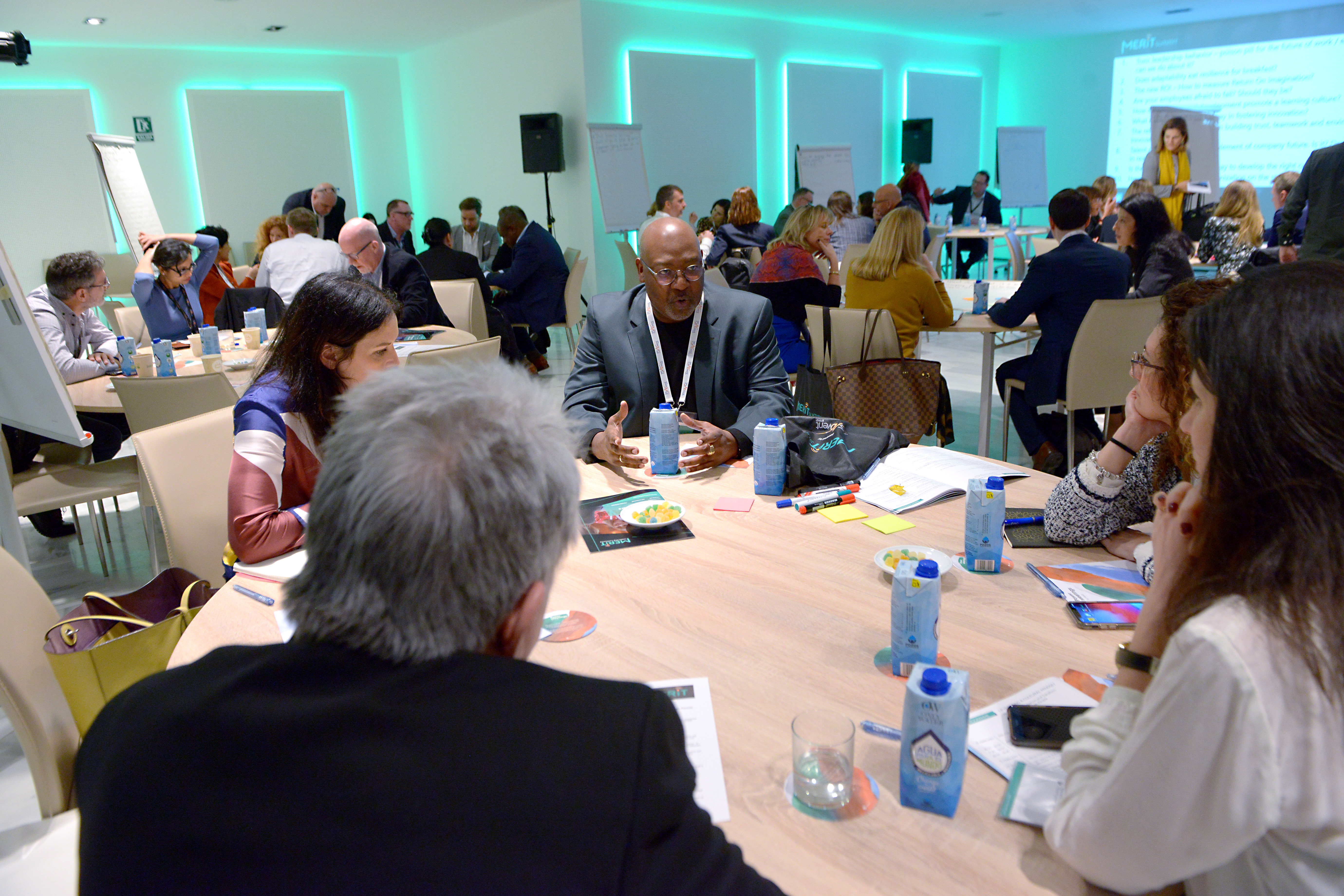
The high engagement during the unconference showed that interactive sessions can power peer-to-peer learning. This effective format can also be applied in the workplace: by encouraging employees to brainstorm together, you can create room for growth.
2. Cognitive shifts enabled by experts.
You think you know what hard work and strong leadership mean? Think again.
Gripping keynotes by influential thinkers led delegates to open their minds to new ideas. Margarita Mayo of IE University (Spain) showed how people undervalue the most effective leaders, who are humble and self-reflective. “Humility is contagious,” Margarita said, and authentic leaders can transform organisations and make them more resilient.
In a similar vein, Alex Budak of UC Berkeley’s Haas School of Management (US) challenged everyone in the room to be a changemaker. He proposed the idea of “norm entrepreneurship”: if you don’t like a certain norm at your workplace, speak up and suggest a change. Another crucial tip from Alex: ask for help! Too often, people are afraid to ask, when others are likely to be on their side.
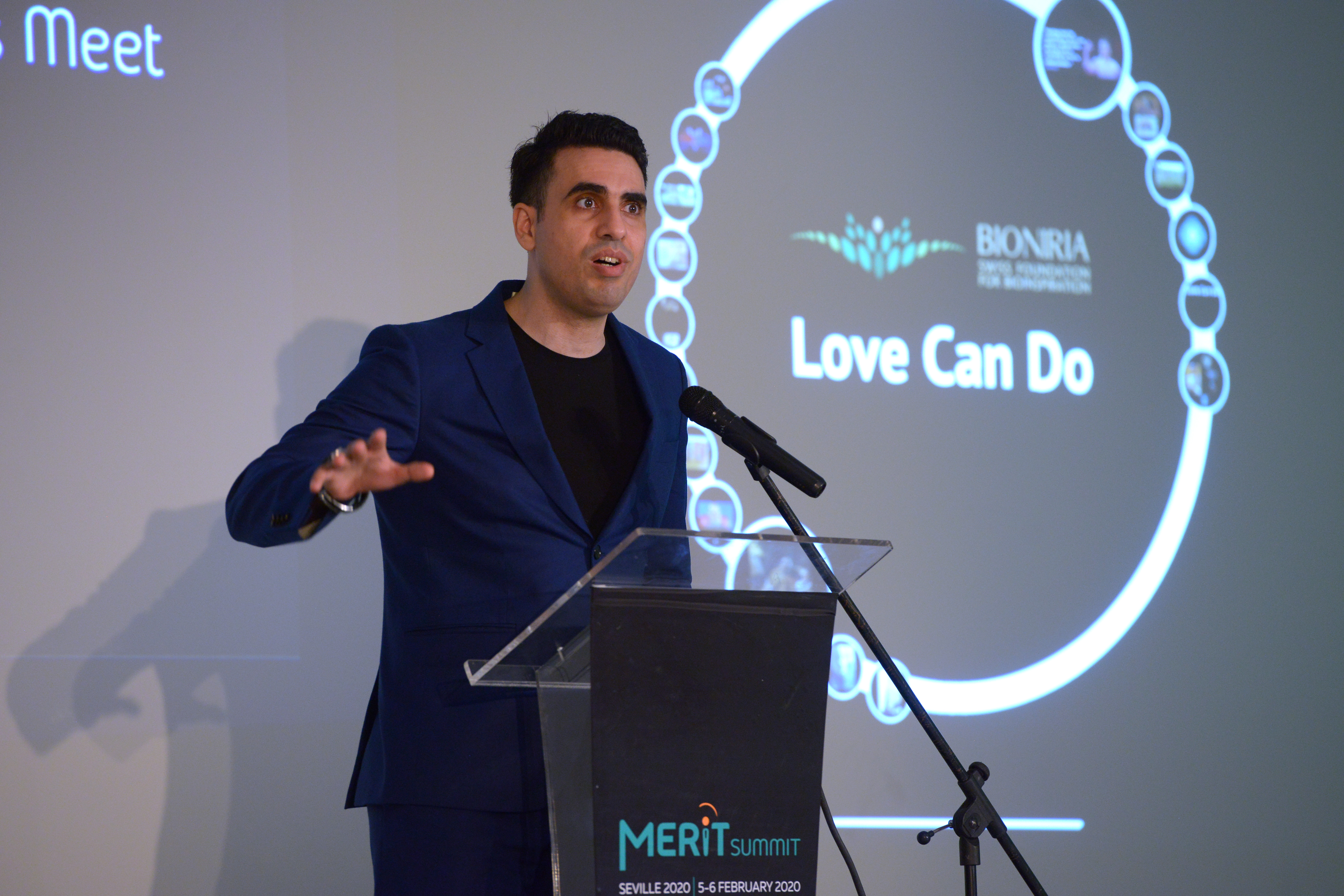
Idriss Aberkane’s opening keynote jolted everyone in their seats, prompting a flurry of Twitter posts sharing its inspiring message. We don’t yet know how to work, Idriss argued. Most people assume work correlates with suffering. But, on the contrary, loving what you do is the only way to success. His “Love Can Do” message is the antidote to cultures of overwork and burnout. The goal: make sure your employees love what they do and do what they love!
3. Learning in action.
The workshops at the Annual Summit were an important reminder that HR and L&D leaders need to learn too, and can benefit from spaces for self-reflection and growth. Often, getting a different perspective from an expert or peer can help you see solutions to a particular challenge.
The workshops in Seville led participants on various learning journeys: from using drawing techniques to unlearn assumptions, to sharing their challenges in an intimate setting where they could get feedback from colleagues. Renowned learning expert Nick van Dam taught how digital upskilling can be achieved faster. And in a workshop led by Oliver Olson of the Maastricht School of Management (Netherlands), HR leaders took stock of what their company’s employer brand looks like from the outside.
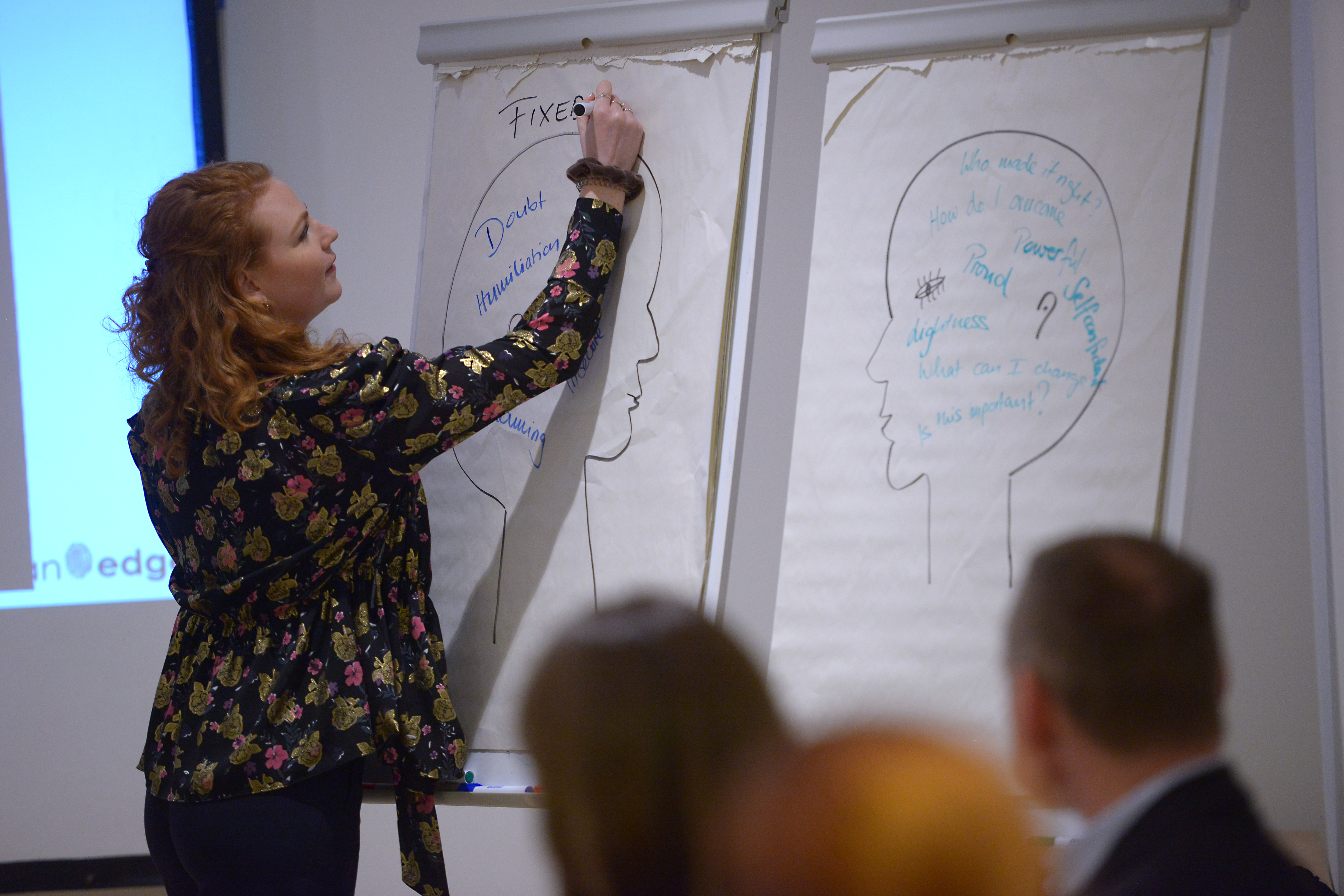
The MERIT Annual Summit set the tone for how HR and L&D leaders can continue to reflect, learn, and get better at what they do throughout the year.
4. Change works.
Delegates heard how their colleagues overcame great challenges to bring their organisations into the future. A highlight of the event was the “passion and commitment I witnessed on part of HR”, shared Dragana Beara, Portfolio Messaging Director, Dell Technologies. That passion shone through in the company case studies.
Anna Walther, Senior Gobal HR and L&D Lead, Nestlé, shared how she led her company’s agile transformation: if it can be done with 300,000 employees around the world, it can be done anywhere. Jeff Lindeman, Group Director of Operations at WD-40, told his story of leading culture change by changing himself. Jeff learned to reframe anger in order to see things from his employees’ perspective. Jim van Hulst, Director L&D, Johnson Controls, demonstrated how his new leadership development programme is making leaders from 150 countries feel part of the same team.
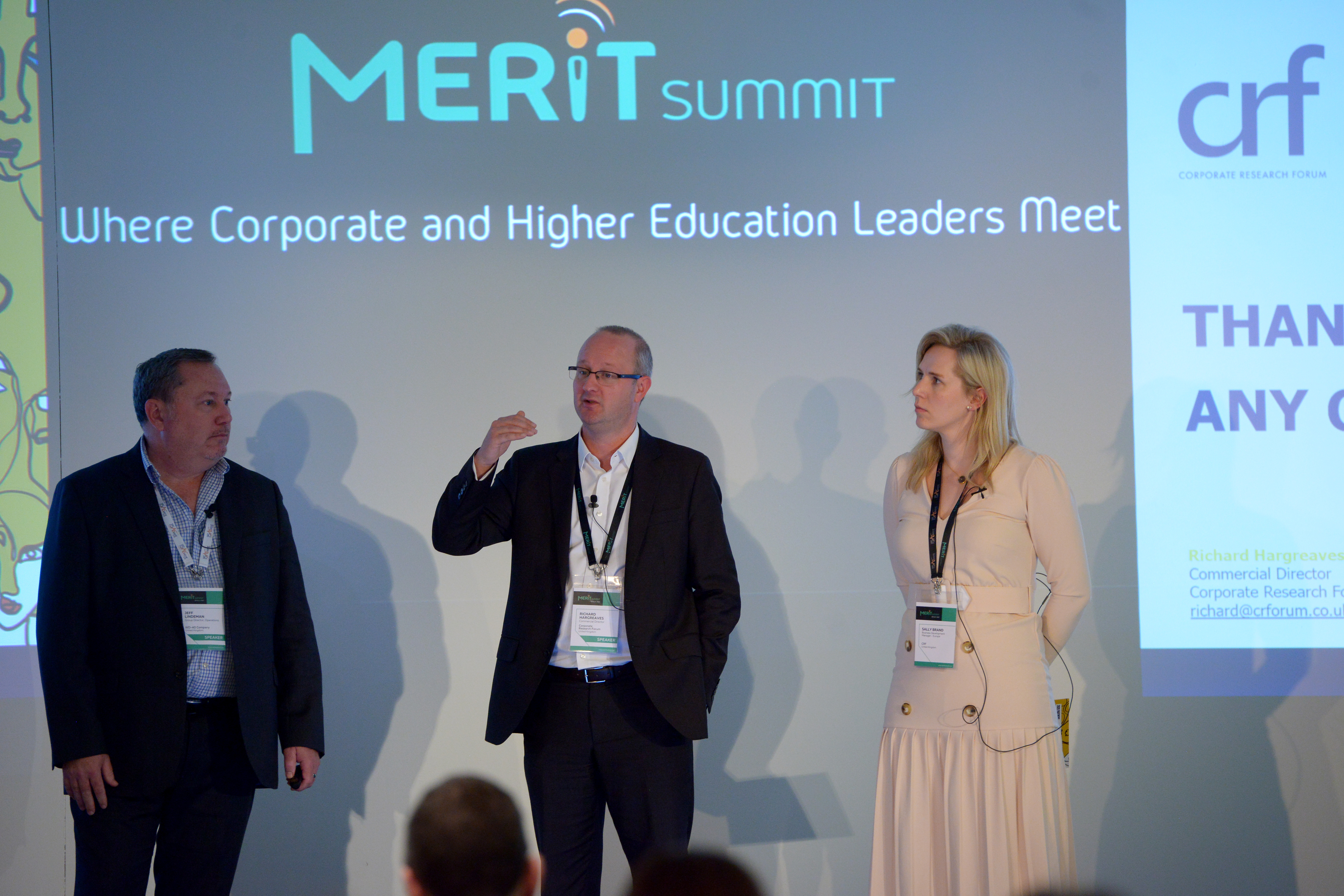
These case studies demonstrated that change works, once you muster the courage to start. Try, fail forward – as Alex Budak of Berkeley Haas advised – and next year it could be you presenting your experience at the MERIT Annual Summit.
The 2020 takeaways in a nutshell: connect with peers and seek advice; promote humility and self-reflection; keep learning; be a changemaker. Good luck! See you in Paris soon!
By Ani Kodjabasheva






 www.adventgroup.net
www.adventgroup.net